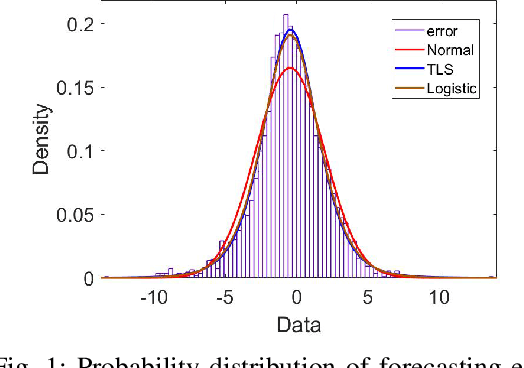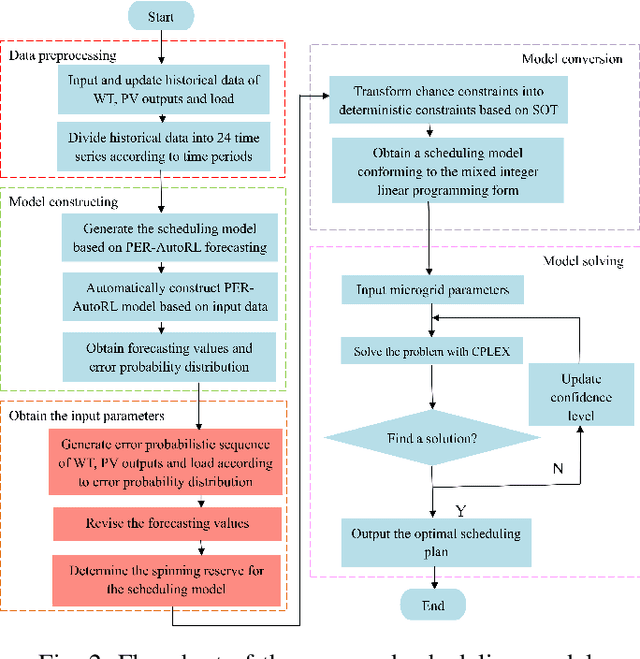Ruinong Wang
Wind Power Forecasting Considering Data Privacy Protection: A Federated Deep Reinforcement Learning Approach
Nov 02, 2022



Abstract:In a modern power system with an increasing proportion of renewable energy, wind power prediction is crucial to the arrangement of power grid dispatching plans due to the volatility of wind power. However, traditional centralized forecasting methods raise concerns regarding data privacy-preserving and data islands problem. To handle the data privacy and openness, we propose a forecasting scheme that combines federated learning and deep reinforcement learning (DRL) for ultra-short-term wind power forecasting, called federated deep reinforcement learning (FedDRL). Firstly, this paper uses the deep deterministic policy gradient (DDPG) algorithm as the basic forecasting model to improve prediction accuracy. Secondly, we integrate the DDPG forecasting model into the framework of federated learning. The designed FedDRL can obtain an accurate prediction model in a decentralized way by sharing model parameters instead of sharing private data which can avoid sensitive privacy issues. The simulation results show that the proposed FedDRL outperforms the traditional prediction methods in terms of forecasting accuracy. More importantly, while ensuring the forecasting performance, FedDRL can effectively protect the data privacy and relieve the communication pressure compared with the traditional centralized forecasting method. In addition, a simulation with different federated learning parameters is conducted to confirm the robustness of the proposed scheme.
Optimal Scheduling of Isolated Microgrids Using Automated Reinforcement Learning-based Multi-period Forecasting
Aug 15, 2021



Abstract:In order to reduce the negative impact of the uncertainty of load and renewable energies outputs on microgrid operation, an optimal scheduling model is proposed for isolated microgrids by using automated reinforcement learning-based multi-period forecasting of renewable power generations and loads. Firstly, a prioritized experience replay automated reinforcement learning (PER-AutoRL) is designed to simplify the deployment of deep reinforcement learning (DRL)-based forecasting model in a customized manner, the single-step multi-period forecasting method based on PER-AutoRL is proposed for the first time to address the error accumulation issue suffered by existing multi-step forecasting methods, then the prediction values obtained by the proposed forecasting method are revised via the error distribution to improve the prediction accuracy; secondly, a scheduling model considering demand response is constructed to minimize the total microgrid operating costs, where the revised forecasting values are used as the dispatch basis, and a spinning reserve chance constraint is set according to the error distribution; finally, by transforming the original scheduling model into a readily solvable mixed integer linear programming via the sequence operation theory (SOT), the transformed model is solved by using CPLEX solver. The simulation results show that compared with the traditional scheduling model without forecasting, this approach manages to significantly reduce the system operating costs by improving the prediction accuracy.
 Add to Chrome
Add to Chrome Add to Firefox
Add to Firefox Add to Edge
Add to Edge